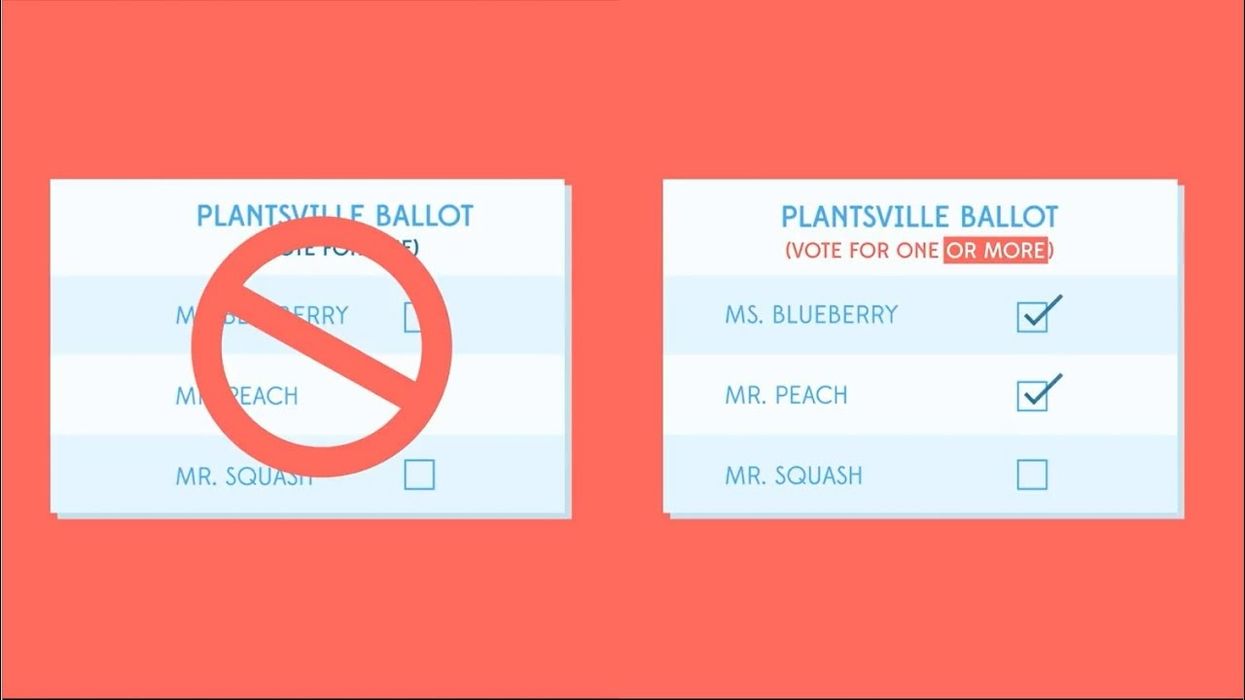Peña is operations director and Raleigh is advocacy director at the Center for Election Science, which advocates for the alternative election method known as approval voting.
Straightforward. Practical. Just trying to do the right thing. That's how we would describe the people we've met in Fargo.
North Dakota's largest city, with just above 120,000 people, has a small-town feel. The people smile at you as you walk down the sidewalk, and it seems that everyone knows everyone else. They love hotdishes, knoephla and community street festivals. They have pride in their city and pride in their identity as people from the Plains.
And it seems like that small-town, Great Plains attitude is part of what led Fargo citizens to overwhelmingly vote to implement approval voting in 2018. Voters could see that approval voting was just like them — straightforward, practical and trying to get it right.
The people of Fargo — people like Reform Fargo leader Jed Limke — knew there was something wrong with their elections. They saw candidates winning without broad support. They saw the voices of many people not being heard. And they knew this was wrong. So they didn't stop until something was done about it. They didn't stop until approval voting was passed.
A year and a half later — six week ago, on June 9 — Fargo voters participated in the nation's first-ever approval voting election. They got to experience first-hand just how straightforward, practical, and able-to-get-it-right approval voting is. It's no longer just a good idea. We now have real-world data to show the power of approval voting and why it can and should be used by everyone.
Approval voting proved itself to be straightforward. With approval voting, voters simply voted for all the candidates they supported, none they didn't, and the two candidates approved by the most voters won. That's it. No multiple rounds, formulas, or complicated ballots.
Approval voting made it clear who won and what the people wanted — the two winning candidates for the city council received approvals from 55 percent and 53 percent of voters. That's a far cry from the days when members of the City Commission were elected with small fractions of the vote. This time, the winners have a clear mandate to lead and implement needed changes for their city. What's more straightforward than that?
Even better, voters agree that approval voting is straightforward. In a poll we commissioned, 71 percent of Fargo voters said that approval voting was easy to use. That means that voters were able to have their voices truly heard, and it only required a small, easily understandable change. As our friends at Reform Fargo have said: Small change, big impact.
Approval voting is also practical. When the Fargo Elections Task Force looked into alternative voting methods to improve city elections several years ago, one of the reasons they eventually recommended approval voting is because implementing it wouldn't cost the city a cent. Their voting machines were already equipped to use approval voting — as are any other voting machines anywhere across the country. This is not the case with all voting methods, as some more complicated alternatives can require costly upgrades.
Strong democracy shouldn't be reserved for cities with big budgets. Voters in cash-strapped cities shouldn't have to wait for a software upgrade to have their voices heard. Approval voting is the practical, democratic option that's open to everyone — with no deep pockets required.
Finally, just like the people of Fargo, approval voting tries to get it right. We can see that in the results from last month. Voters were able to elect candidates who had broad support — more than half the voters cast votes for each winner from a field of six, incumbent John Strand and challenger Arlette Preston.
Approval voting allowed newcomers with new ideas to enter the race without fear of being a "spoiler." In the poll we conducted, 69 percent of voters said that approval voting helped them vote for their favorite candidate without worrying about spoiling the election. This means that more underdog candidates can have their voices heard and have a real shot at being elected.
Approval voting gave power back to voters by allowing them to share their opinion on each and every candidate on the ballot. Traditionally, political power lies with the candidates who are able to cater to the smallest possible base of support and squeak by on the margins. Not with approval voting. Now, voters are in charge.
And because approval voting gives power back to the people, it empowers communities who have historically been marginalized by our voting system to elect leaders who represent their interests. In St. Louis, where we're helping activists to implement nonpartisan, approval voting primaries, 74 percent of Black residents said they would be more likely to vote in city elections under approval voting. They see that approval voting will allow them to concentrate — not split — their political power, hold winners accountable, and make sure that elected officials represent their interests.
It may not have gotten a lot of attention, but people in our 223rd biggest city just did something historic. They held the first-ever approval voting election in United States history. They took an enormous step toward a stronger, more just democracy. A city that many of us don't think about outside of the universe of Coen Brothers movies just revolutionized the way their elections run.
And how'd they do it? They did it by sticking to their roots — straightforward, practical, and not stopping until they got it right. Maybe the rest of the world needs to be a bit more like Fargo.



















Trump & Hegseth gave Mark Kelly a huge 2028 gift